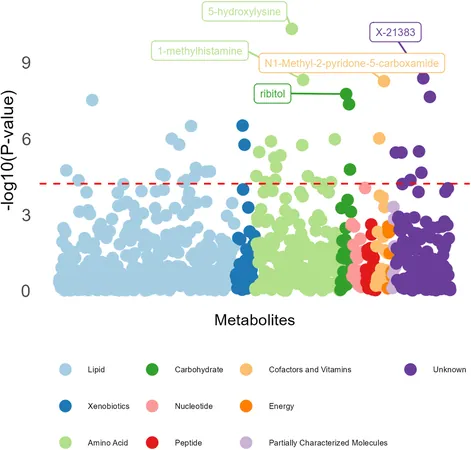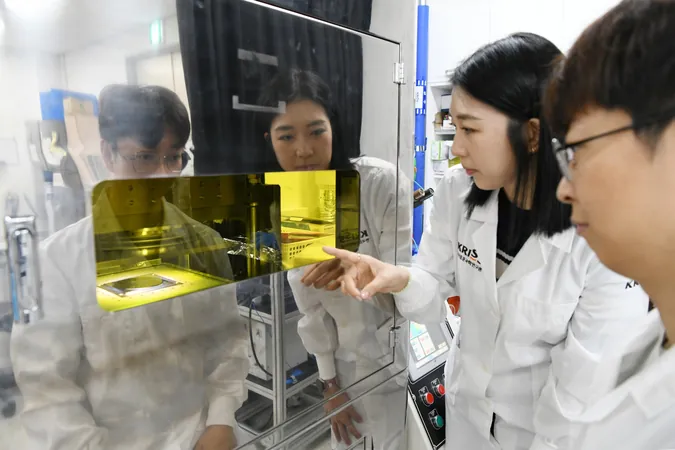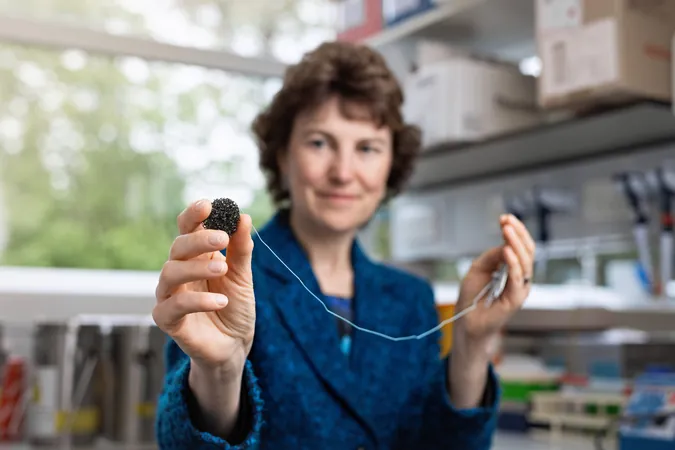
Groundbreaking Discovery in Sudden Infant Death Syndrome: A Potential Lifesaver for Babies
2025-01-22
Author: Li
Researchers from the University of Virginia School of Medicine have made a groundbreaking discovery in the fight against Sudden Infant Death Syndrome (SIDS), revealing crucial biomarkers in blood samples that could help identify infants at risk. Published in the journal eBioMedicine, this research may lead to the development of simple tests capable of preventing tragedies for countless families.
SIDS remains the leading cause of death among infants between one month and one year of age, leaving parents devastated and searching for answers. The UVA team's pioneering work sheds new light on the underlying causes of this mysterious condition, which has long puzzled scientists and healthcare professionals.
Utilizing blood serum samples from 300 infants who tragically succumbed to SIDS, the researchers identified specific biological indicators linked to their deaths. This extensive analysis involved evaluating 828 metabolites—substances created during cellular processes—related to critical functions like nerve communication, stress responses, and hormone regulation. Remarkably, 35 distinct biomarkers were associated with an increased risk for SIDS.
Among the most notable findings was the identification of ornithine, a vital compound for the body’s ability to eliminate ammonia through urine. Its role has already been pointed out as a potential ally in SIDS cases. Additionally, the researchers identified a lipid metabolite essential for brain and lung health, known to be a predictor for fetal heart defects during the first trimester. These discoveries signify a crucial connection between metabolic processes and SIDS.
The research team, led by expert Keith L. Keene, Ph.D., is optimistic about the implications of their findings. "What we uncovered supports the involvement of multiple biological pathways, offering insights into how these processes might increase the risk for SIDS or even aid in diagnosis," he stated.
But this isn't just an academic exercise. The potential for metabolomics—the comprehensive study of metabolites—to revolutionize approaches to complex diseases is now more evident than ever. As these researchers continue their investigation, they stress the importance of further studies to determine causation.
Dr. Fern R. Hauck, a leading SIDS expert and family medicine physician at UVA Health, expressed hope that this research could transform pediatric healthcare. "The results are thrilling; they bring us closer to understanding the biological pathways leading to SIDS," she remarked. "Our ultimate goal is to develop straightforward blood tests that can identify infants at a heightened risk, offering parents peace of mind and possibly saving lives."
In light of this pivotal research, families can cling to hope as the scientific community races to uncover the mysteries of SIDS. With continuous advancements expected in the realm of metabolomics, the dream of a brighter future for infant safety is nearing reality. Parents everywhere will soon be able to breathe a sigh of relief knowing that the tools to identify risks are potentially on the horizon.



 Brasil (PT)
Brasil (PT)
 Canada (EN)
Canada (EN)
 Chile (ES)
Chile (ES)
 Česko (CS)
Česko (CS)
 대한민국 (KO)
대한민국 (KO)
 España (ES)
España (ES)
 France (FR)
France (FR)
 Hong Kong (EN)
Hong Kong (EN)
 Italia (IT)
Italia (IT)
 日本 (JA)
日本 (JA)
 Magyarország (HU)
Magyarország (HU)
 Norge (NO)
Norge (NO)
 Polska (PL)
Polska (PL)
 Schweiz (DE)
Schweiz (DE)
 Singapore (EN)
Singapore (EN)
 Sverige (SV)
Sverige (SV)
 Suomi (FI)
Suomi (FI)
 Türkiye (TR)
Türkiye (TR)
 الإمارات العربية المتحدة (AR)
الإمارات العربية المتحدة (AR)